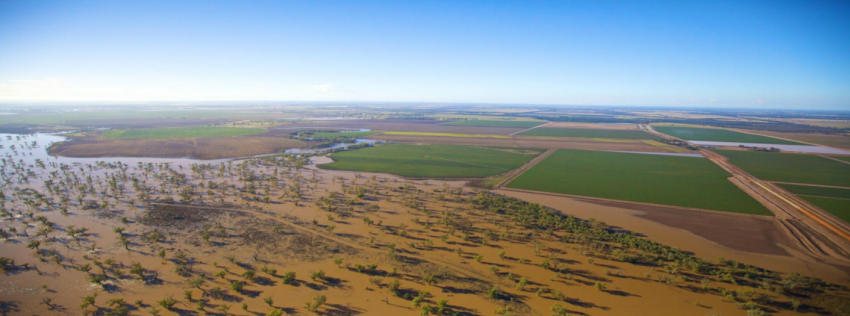
The NSW government’s water management plan is in crisis since the Legislative Council rejected its floodplain harvesting regulations a second time. The Murray Darling Basin Authority (MDBA) has also rejected 20 of the state’s water resource plans.
Minister for Water, Property and Housing Melinda Pavey made a second attempt on May 6 to licence the diversion of overland flows in favour of Northern Basin irrigators. But she was defeated by Labor; the Greens; Shooters, Fishers and Farmers; the Animal Justice Party, and Independent Justin Field.
Field introduced a motion on April 30 to disallow new regulations that would have enabled billions of dollars worth of licences to harvest flood waters across the state’s Northern Basin.
Under the MDBA, NSW is required to take control of these unmonitored and unmanaged extractions and return over-allocations of water.
Dramatic increases in floodplain harvesting in the Northern Basin are blamed for reductions in river flows, which have had a devastating impact on Southern Basin water users, wetlands and inland biodiversity.
Water policy consultancy Slattery and Johnson estimated that on-farm storage has blown out to approximately 1500 gigalitres this year, from 400 gigalitres in 1994. They said the floodplain plans are devastating for the environment.
There is widespread opposition to the proposed new regulations from river communities, environment and farming lobbies such as the Lifeblood Alliance, Water for Rivers, the Nature Conservation Council and Healthy Rivers Dubbo.
Water for Rivers said the unjust handout of floodplain harvesting licences privatise rainfall in private corporate dams, capturing overland flows from rivers and wetlands and the people who depend on them.
Mel Gray of Healthy Rivers Dubbo said: “We support metering, modelling and good management rules. Locking in new floodplain harvesting property rights could expose the public purse to multi-million-dollar compensation claims.
“Issuing permanent property rights to irrigators is a huge transfer of public wealth that should only be considered once good public outcomes can be guaranteed, including for First Nations peoples who are disproportionately disadvantaged under the current policy settings.”
Field said that the floodplain harvesting rules contained in the rejected bill which were not fair or transparent and failed to deliver for downstream communities and the environment.
“Before billions of dollars of floodplain harvesting licences are handed out, clear targets for downstream flows must be set in law to ensure that the other water licence holders, downstream communities and the environment get their fair share of these flows”, Field said.
The MDBA rejected 20 of the state’s water resource plans last week. “All proposed NSW [plans] appear to be inconsistent with Basin Plan requirements,” the MDBA said, “Some of these inconsistencies are policy related and others are technical in nature.”
Maryanne Slattery, spokesperson for Slattery and Johnson, told the May 6 Sydney Morning Herald that “NSW has effectively walked away from the [MDBA] plan without saying so”.
Slattery said the government needs to put in place water sharing plans that include floodplain harvesting volumes that are also agreed to by environment minister Matt Kean. “In their current form, these plans are devastating for the environment and many people in the NSW Basin are hoping minister Kean will not sign off on them.”
Field wants Premier Gladys Berejiklian to remove the water portfolio from the National Party, due to growing community concerns. “The community and the Parliament have cause to not trust the National Party when it comes to water,” he said.
The Independent Commission Against Corruption has already shown that “we cannot give a blank cheque to the NSW government”, Field said. It found “a repeated tendency” by the govenrment’s water agencies to “adopt an approach to water management that was unduly focused on the interests of the irrigation industry”. He said the Berejeklian government has “failed to give effect to the legislated priorities for water sharing” which prioritise the environment over extraction.
[Tracey Carpenter is an activist in Water for Rivers.]